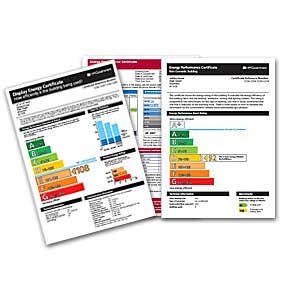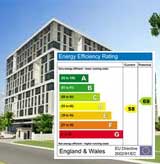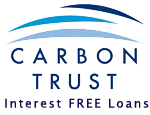
This mandatory air conditioning inspection is designed to help you improve efficiency and reduce your electricity consumption, operating costs and carbon emissions for your system. It is required for air conditioning systems greater than 12kW and has been in operation since 2009.
Below are extracts from the government document “Improving the Energy Efficiency of our Building – A guide to air conditioning inspections for buildings”. This document outlines the practical implications, from an air conditioning perspective, of the directive on building owners and managers. The whole document is about 32 pages and we have attached a link to it at the end of this page.
Why air conditioning inspections are required by law:
Having your air conditioning inspection by an Energy Assessor is designed to improve efficiency and reduce the electricity consumption, operating costs and carbon emissions for your system. Energy inspections will highlight improvements to the operation of your existing systems or opportunities to replace older, less energy efficient systems or oversized systems with new energy efficient systems. Although it is mandatory to have a valid EPC, implementing recommendations within it are not.
When are air conditioning inspections required?
All air-conditioning systems with an effective rated output of more than 12kw must have an Energy Performance Certificate. All such installations must be regularly inspected by an Energy Assessor. The inspections must be a maximum of five years apart.
How do I know if my air conditioning uses more that 12kw?
The effective output of an individual air conditioning unit or system may be given on the rating plate attached to the unit. It may also be stated in the operating and maintenance manual, if it can be located. If in doubt, give us a call and we will come and tell you – FREE of charge.
Building areas likely area requiring 12kW of cooling are:
[ul style=”2″] [li]200 sqm (square metres) of Air-conditioned general office space (Assuming typical levels of electrical equipment and 8–10m2 per person) [/li] [li]100 sqm of Air-conditioned offices with high levels of IT and electrical equipment (Office, call centre or dealing floors with high occupant densities of 6 sqm or similar, and high levels of IT, communications or lighting loads may well fall within the scope at smaller areas.) [/li] [li]250 sqm of Retail spaces with average levels of display lighting. [/li] [li]150 sqm of Retail spaces with high levels of display lighting and illuminated cabinets 150 sqm [/li] [/ul]Who is responsible for obtaining air conditioning inspections?
The person who controls the operation of the system is the person who controls the technical functioning of the system, not someone who does no more than adjust the temperature. If you control the operation of an air-conditioning system affected by these Regulations, it is your responsibility to:
[ul style=”2″] [li]ensure an inspection has been done in accordance with the requirements and timetable of the Regulations[/li] [li]keep the most recent inspection report made by an energy assessor [/li] [li]give any inspection report kept by you to any person taking over your responsibilities with respect to the control of the air-conditioning system [/li] [/ul]
If the person in control of the air-conditioning system changes and the new person in control is not given an inspection report, the new person in control of the system must ensure the air-conditioning system is inspected within three months of the day that person assumes control of the system.
Where the operation and management of the system is carried out on a day to-day Facilities Management basis, or a servicing company provides routine servicing and maintenance, the contract may specify the FM or servicing company as the controller of the system with responsibility for ensuring that inspections are carried out. Depending on the terms of such a contract the FM or servicing company may accordingly become responsible under the regulations also. Even in such cases, however, the landlord or tenant retains a parallel duty to ensure the air conditioning inspection has been done.
Who can carry out air conditioning inspections?
An energy inspection of an air-conditioning system must be carried out by an accredited energy assessor who is a current member of an approved accreditation scheme. The appropriate methodology is as described in CIBSE TM44 or equivalent. Give us a call and we can help you find one.
What does an air-conditioning inspection cover?
The inspection will examine the refrigeration and air movement equipment that are part of air-conditioning systems, and their controls. It will also examine any documentation that helps to understand the systems, or indicates the extent to which the systems have been maintained. The energy assessor is also required to estimate whether the system is suitably sized for the cooling loads in the treated spaces, and to provide advice.
Evidence of any existing planned maintenance schedule, or of other recent maintenance activities will be sought. Where records clearly show that equipment and systems are already the subject of regular good practice checking and maintenance procedures, a number of aspects of the energy inspection and provision of advice may be reduced in scale or omitted.
Building owners and managers should not expect the air conditioning inspection to identify hazards or unsafe aspects of the installation, operation or maintenance of systems that should be identified and addressed by other arrangements, nor should they expect the energy assessor to fix any problem identified as part of the inspection.
What can I expect in the report?
The purpose of the inspection and report is to ensure that building owners or managers are provided with basic information regarding the efficiency of the air-conditioning systems that they control, together with advice on how the energy efficiency or effectiveness of these systems might be improved.
Acting on the advice in the inspection report and rectifying faults or making appropriate improvements, where this is attractive and cost effective, may result in immediate improvements to the effectiveness of air-conditioning systems or reduce the operating costs. In some cases the costs of providing both heating and cooling may be reduced, in cases where these two systems are unnecessarily. Most reports are likely to contain advice with a combination of simple low or no cost measures and measures where some investment may be required either to apply the measures, or to investigate the potential to apply measures in more detail. The manager should also be provided with, or informed how to obtain, access to advice on the ongoing management of the systems, particularly that contained in existing free publications such as the Carbon Trust’s Good Practice Guides.
Penalties for not having an air-conditioning inspection report
Local authorities (usually by their Trading Standards Officers) are responsible for enforcing the requirements relating to air-conditioning inspection reports. Failure to commission, keep, or provide an air-conditioning inspection report when required by the Regulations means you may be issued with a penalty charge notice. Trading Standards Officers may act on complaints or undertake investigations. They may request you to provide them with a copy of your air-conditioning inspection report. If asked, you must provide this information within seven days of the request or be liable to a penalty charge notice for failing to do so. The penalty for failing to having an air-conditioning inspection report is fixed at present at £300.
We are listed in a number of top business directories:
Air Conditioning Services We’re listed in the Air Conditioning Services section of the B2B Index. Also in the Smart Business Directory







